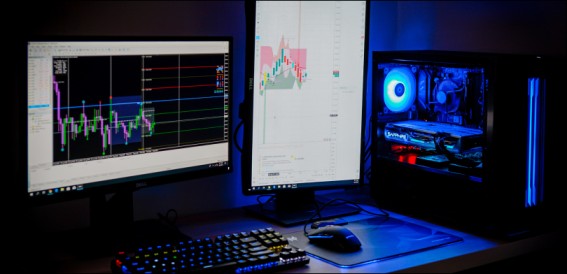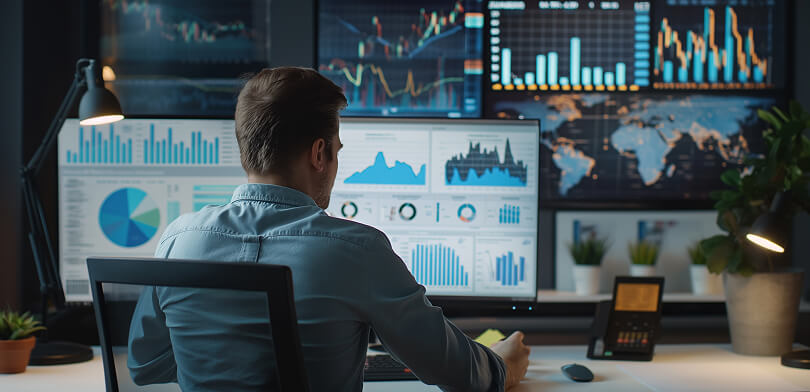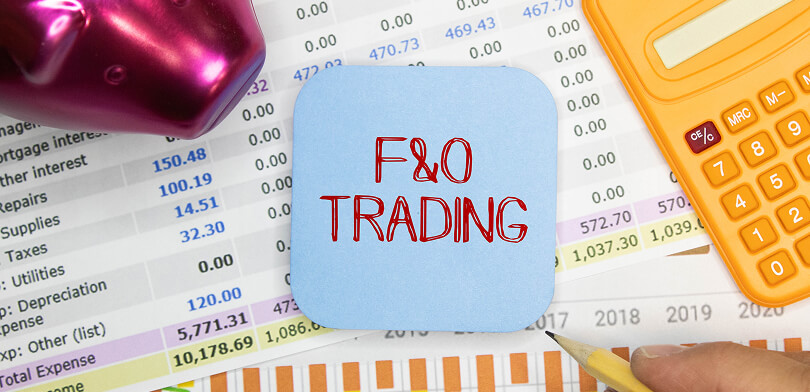When you start trading futures, one important term you will hear repeatedly is the margin. Understanding margin is an important part of trading, whether you’re starting or already experienced. Margin means more than just a requirement to enter a trade. It becomes an integral part of your trading strategy, which can greatly impact your risk and return. This article will examine why margin is important, how it works in the futures market, and the key advantages of future margins.
What is Margin in Futures Trading?
Margin is the deposit or collateral you must keep in your trading account when trading futures. Stock trading requires you to pay the full value of the stock, while futures trading lets you control high-value assets by depositing a smaller amount, known as margin. This margin acts as collateral to show you can cover any potential losses. It has two key features: it enables position creation and is not considered a financial expense.
Step into the world of Futures & Options — Open your Demat account
How Does Margin Work in Futures Trading?
In futures trading, by entering into a contract, you do not have to pay the total value of the underlying asset. You will assume a percentage of that value. This is where the margin comes in. Although the margin requirements vary by futures, they are a typically small amount of the total up from the contract. Let’s breakdown:
- Initial Margin: This refers to the amount you are required to deposit to take a position in a futures market. Initial margins are generally set by either the exchange or your broker, and the volatility and size of the contract will impact them.
- Maintenance Margin: Keep a minimum balance in your margin account to preserve your opened position. Following adverse price movements that lower your account to specific levels will trigger a margin call requiring you to replenish your funds.
- Variation Margin: This is the amount you have gained or lost due to a change in futures price in the market price. Daily, your account will be marked to market on price fluctuations. If you have a loss, it will reduce your margin. If you have a profit, it will increase your margin.
Why is Margin Important in Futures Trading?
Margin plays an essential role in future trading operations. Through margin, traders can leverage their position and control bigger trades with minimal investment funds while effectively managing potential losses. In the futures market, margin is crucial because of its essential functions.
Leverage
One of the primary reasons margin matters is that it gives you the ability to leverage. Leverage means controlling a larger contract size without investing that full amount. For example, if you are trading a futures contract worth ₹10,00,000, and the margin is only ₹50,000, you control a position much greater than the investment amount. However, in addition to generating potential returns with leverage, you can also incur greater losses than your initial investment with greater leverage.
Risk Management
Margin enables effective management of your risk. Because futures contracts are marked to market each day, the margin secures both parties’ ability to honour the trade. Margin protects the brokers and exchanges against the risk of significant market movement.
Market Access
Margin allows you to trade in markets that you might not be able to access with your available capital alone. Without margin, you would have to spend large amounts of money to buy or sell a futures contract. With margin, you can spread your positions around and access diverse markets, from commodities to stock indices to currencies, without committing substantial capital.
Liquidity
Margin promotes liquidity in the market. The ability to trade on margin enables traders to get into and out of trades quickly and provides efficient price discovery. This liquidity is critical to the functioning of the futures market, especially for large trades and institutional players.
Benefits of Future Trading
Futures margins offer several key benefits:
- Increased Profit Potential: Margin enables you to benefit from larger positions with a lower investment, which can raise your profit potential even with small price movements.
- Cost-Efficient Trading: Since you are not paying for a full futures contract at market value, you can invest that cash in other opportunities, which helps maintain a diversified portfolio.
- Flexibility to Make Any Changes: Margin will allow you to adapt to any market change or take advantage of short-term new opportunities without deploying full capital upfront.
- Hedging: Margin provides another layer of protection to your investments through hedging strategies. By taking short positions in futures contracts, you can protect your stock portfolio against potential losses.
How to Use Margin in Futures Trading Wisely
Margin provides multiple benefits, but it also carries significant risks. The difference between a lucrative futures trade and losing your entire margin often depends on how well you manage leverage and understand the risks involved. Here are a few margin tips for using margin responsibly:
- Understand Leverage and Risk: Leveraging can exaggerate both gains and losses. Make sure you know how much you are leveraging before submitting any trade. It’s easy for traders to get excited when they see big profits, but if the market is against you, they can wipe out your account in days. Also, be aware of the margin!
- Use Stop Loss Orders: Protect your capital by using stop-loss orders. They automatically close your position at a loss at some point if the market is against you. This is your way of limiting losses.
- Follow Your Positions: You must know your positions during the day because you are marked to market daily. You may have to deposit additional money to maintain your position if the market moves against you.
- Don’t Over Extend Your Margin: Margin allows you to manage larger positions in the market. Don’t over-leverage, and remember to use margin to the extent of your risk tolerance. Also, take care not to take too large a position that could result in a loss of capital.
Conclusion
Margin plays a vital role in futures trading as it can use leverage to your advantage, access a wider market, and improve your overall trading plan. Of course, with great power comes great responsibility; managing your margin wisely and understanding its associated risks can assist you in making good trading decisions in the futures market. If you wish to begin trading futures with leverage, Religare Broking is a great platform. Religare offers an intuitive interface, outstanding resources, and expert assistance to easily make informed trades and manage your margin.
















